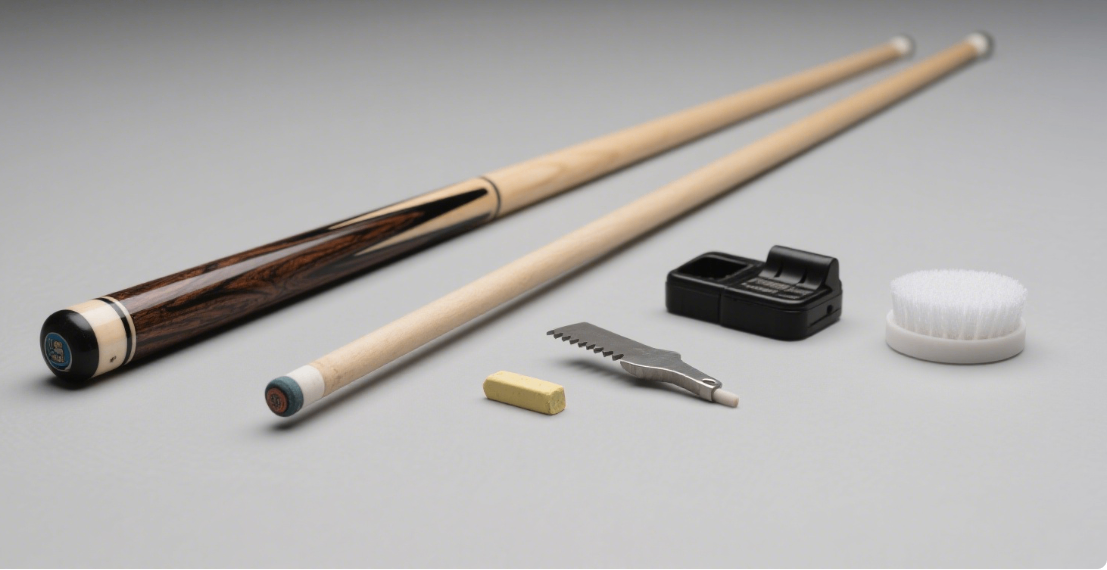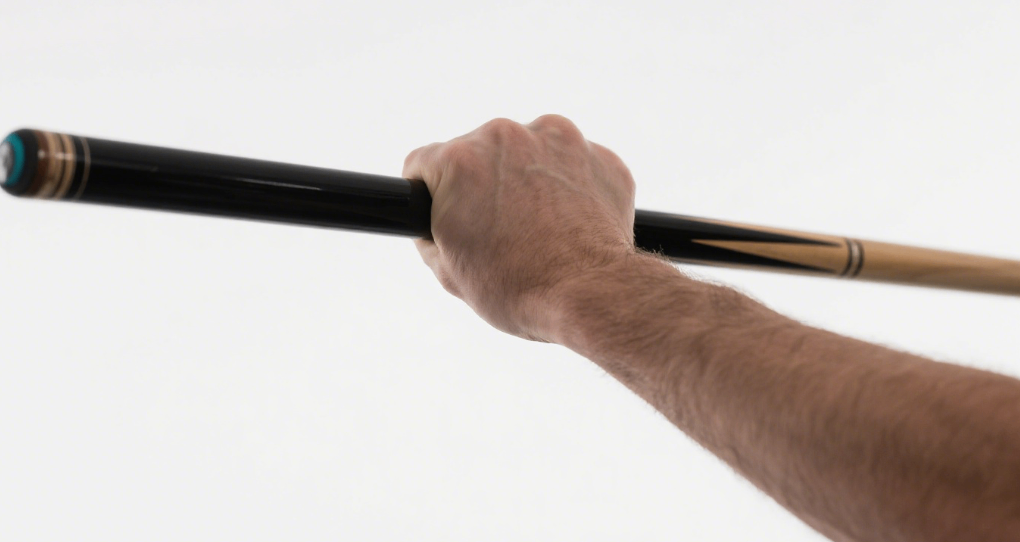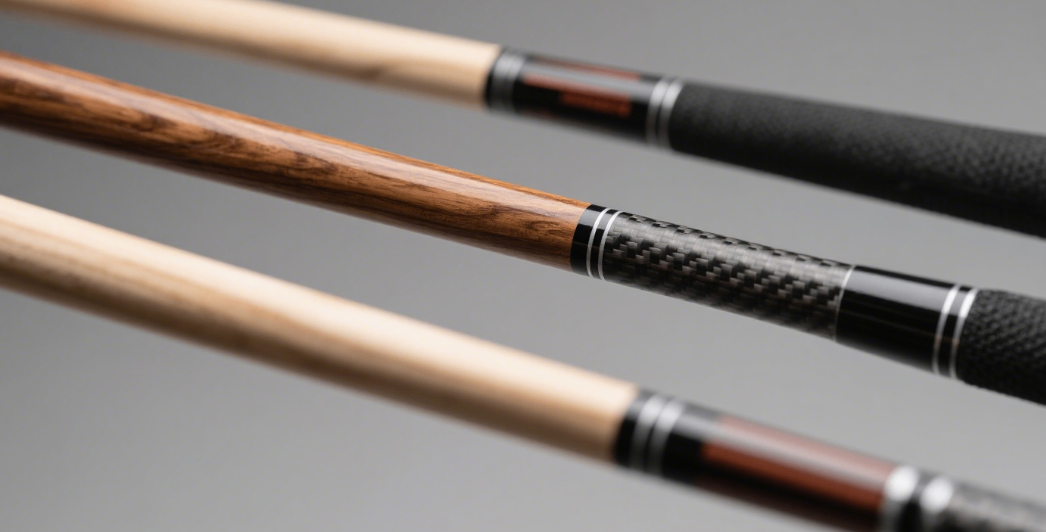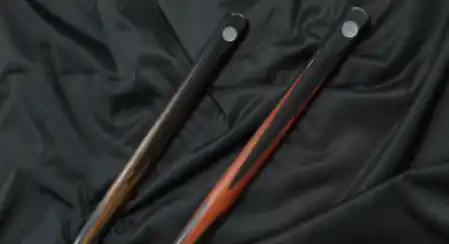Pool is a game that requires both skill and the right equipment. For beginners, choosing the right cue stick is just as important as practicing techniques. A well-suited cue helps you develop proper stroke mechanics, gain control, and avoid forming bad habits caused by poor equipment.
This guide explains how beginners can choose the right pool cue, focusing on weight, length, tip hardness, material, and buying habits.
Cue Weight and Length: Finding the Right Balance

Most standard pool cues are about 57 inches long and weigh between 18 to 21 ounces.
Best weight for beginners: Around 19 ounces.
Why: Lighter cues may feel unstable, while heavier ones can make your stroke stiff. A mid-weight cue offers the best balance of control and striking power, making it easier to build strong fundamentals.
Tip Hardness: Why Hard Tips Are Better for Beginners
When starting out, beginners often struggle with consistent contact and shot accuracy. That’s why a hard-tip cue is the most reliable choice.
Advantages of a hard tip:
Transfers power directly without bending or deforming.
Reduces unwanted spin, helping you hit straighter shots.
Makes it easier to develop consistent stroke mechanics.
👉 In short: Hard-tip cues act as the perfect “training tool” for beginners by keeping things stable and predictable.
Cue Materials: Maple vs. Ash
Two of the most common cue materials are maple and ash:
Maple cues – Smooth shafts with a harder grain. They’re the standard choice for American pool, offering excellent control and a comfortable feel. Ideal for beginners.
Ash cues – Common in snooker, featuring visible grain patterns that can help with aiming. However, they usually require more precision and are less beginner-friendly.
👉 For most beginners, maple is the better choice—easy to control, smooth, and versatile.
Avoid Chasing Brands or Pro Models
A common mistake beginners make is believing that buying a famous brand or a cue used by professionals will instantly improve their game. In reality, high-end cues are often designed for players with consistent mechanics and may not be forgiving for new players.
Recommendation:
Choose a cue that feels comfortable in your hands.
Focus on the right weight, balance, and material within your budget.
You can always upgrade later once your skills develop.
For beginners, the best pool cue is one that’s stable, comfortable, and forgiving. A 19-ounce maple cue with a hard tip is usually the safest choice. It allows you to focus on improving your fundamentals without distractions from equipment issues.
Don’t worry about expensive brands at the start—what matters most is building a solid foundation. Once your game improves, you can explore premium cues that match your playing style.




